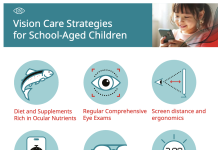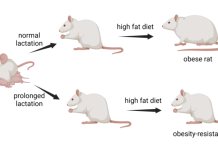Open Access Government produces compelling and informative news, publications, eBooks, and academic research articles for the public and private sector looking at health, diseases & conditions, workplace, research & innovation, digital transformation, government policy, environment, agriculture, energy, transport and more.
Home 2025
Archives
The effects of parental imprisonment on children’s education and health
Written by Egil Kjerstad, Research Director at the NORCE Norwegian Research Centre, this article discusses a research project aimed at understanding how parental imprisonment affects children’s education and health.
Youth suicide: An overview
Professor Deborah Winders Davis from the University of Louisville School of Medicine discusses the prevalence, risk factors, and stigma associated with youth mental health and suicide, emphasizing the importance of raising awareness and developing intervention strategies to tackle the critical issues facing young people.
Consultations with professional groups to improve filicide intervention
Professor Emeritus AM Thea Brown highlights the importance of education and resources among agencies to recognise warning signs of potential filicide and calls for better intervention strategies to protect children.
Hormonal contraceptives and cognition – time to refocus on women!
Hormonal contraceptives shape women’s brains in ways we still barely understand, and it’s time to study their effects on the cognitive functions that really matter, not just “male-like” performance, says Belinda Pletzer, Professor of Neuroendocrinology, Centre for Cognitive Neuroscience – Paris Lodron University of Salzburg.
Adolescent polysubstance use: Time for a new public health approach
Ronan Fleury and Mary Cannon discuss the growing trend of polysubstance use among adolescents and highlight the need for a new public health strategy that reflects the complexities of adolescent substance use.
Screen time and myopia: Options for children’s vision in a digital world
With mounting evidence linking screen time to myopic progression, interest is growing in developing behavioral and nutritional vision care strategies to promote long-term ocular health in the digital age.
Challenges in diagnosing and treating ADHD
Professor Deborah Winders Davis from the University of Louisville School of Medicine outlines the challenges in diagnosing and treating attention deficit hyperactivity disorder.
Filicide: Hope for the future
Research shows that health and welfare services are key in preventing filicide. Thea Brown, Professor Emeritus at Monash University, highlights the need for improved training and education on this issue.
Examining childhood multimorbidity: How crucial is studying early life multimorbidity?
Understanding multimorbidity in childhood, where physical and mental health conditions coexist, is crucial. This interview with Dr. Mark Ferro, Canada Research Chair in Youth Mental Health at the University of Waterloo explores its unique challenges compared to adult research, the need for integrated care, key predictors, and vital research directions.
Prevent filicide: Intervention with potential perpetrators
Thea Brown, Professor Emeritus at Monash University, investigates the flaws in service interventions related to filicide cases and highlights methods to bolster early interventions to prevent potential perpetrators.
Why “learn-from-anywhere” technology can help solve chronic school absence
Megan Gilmour, Churchill Policy and Deakin University Honorary Fellow, Australia, calls for legislation, technology, and policy to address complex school absence during medical or mental health challenges.
The hidden dangers of breastfeeding misconceptions: A deep dive
In the exclusive interview, Dr. Christie del Castillo-Hegyi, co-founder of the Fed is Best Foundation, sheds light on breastfeeding misconceptions and their devastating impact.
Rethinking schools: How the philosophy of education holds the key to real change
Stephanie Schneider, an Associate Professor at the State University of New York at Old Westbury, discusses the importance of examining fundamental philosophical questions regarding the purpose of education and the values it should promote.
Understanding and predicting the intergenerational transmission of mental illness
The FAMILY consortium aims to improve the lives of mentally ill persons and their families by focusing on understanding the mechanisms of intergenerational transmission of mental illness from parent to child.
Balancing digital literacy and children’s wellbeing: A call to action
Given children’s increased exposure to digital technologies, Leen d’Haenens from the University of Leuven discusses findings from a research project called ySKILLS, which aimed to enhance the positive impact of the digital environment on children’s wellbeing.
A promising approach to preventing developmental dyslexia
David Mather, an Independent Researcher at the University of Victoria, has a promising approach to preventing developmental dyslexia. Discover more here.
Prolonged lactation: Preventing obesity since infancy
Dr Vincent Prevot and Professors Markus Schwaninger and Ruben Nogueiras explain the significance of the perinatal maternal lifestyle, specifically prolonged lactation, in shielding offspring from chronic disease.
Supporting the mental health needs of children with language and literacy difficulties
Professor Mark Boyes, Curtin enAble Institute, spotlights mental health in the context of language and literacy difficulties, including the urgent need for accessible mental health interventions.
Can the arts be an effective tool to combat psychosis stigma?
There has been a rise in stigma for mental illnesses over the past few decades, particularly for psychotic symptoms. However, artistic representation may be the key to eliminating psychosis stigma.
Development of novel therapies for pediatric cancer: Successes and challenges
Peter J. Houghton from Greehey Children’s Cancer Research Institute and Mary-Ann Bjornsti from the University of Alabama discuss some of the key challenges in the development of therapies for pediatric cancer care.





















